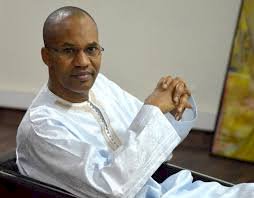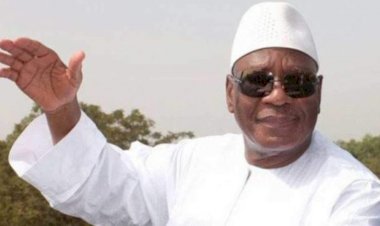If you can see the work of your life destroyed And without saying a single word start rebuilding. »By Mamadou Ibra Kane

“If you can see the work of your life destroyed
And without saying a single word you start to rebuild,
Or, suddenly lose the winning of a hundred games
Without a gesture and without a sigh… ”
If you can … if you can …
“So, Kings, Gods, Luck and Victory
Will forever be your submissive slaves
And, which is better than Kings and Glory,
You will be a Man, my son! ”
Reading and re-reading this famous poem by British writer Rudyard Kipling, published in 1910, one finds oneself crushing a tear. We also realize its topicality, more than a century after its publication. How can we help but think of the two family tragedies that have occurred this week, which have thrown an entire Senegalese population into turmoil? A customs colonel who slaughters his 6-year-old daughter at Les Mamelles in Dakar! In Tivaouane, another father of only 20 years old, who kills both his son and his wife before committing suicide in his turn!
To take the life of one’s son or daughter, isn’t it destroying the work of (one’s) life? It is also to renounce forever the pride of being able to address the being that one has built with his blood and baptized with his name, in these terms: “You will be a man, my son” or “… wife, my daughter ”.
When you know what a father means to his child; when we measure the importance of this same child for this same father, we are struck by a thought: there are unspeakable crimes. Unspeakable even! That cut off your floor and your legs. In reality, what can be done in the face of such serious family tragedies? Bringing justice ? Surely. But to whom? Against whom (the perpetrator of Tivaouane committing himself to death)? For who ?
What just happened in both Cape Verde (Dakar) and Cayor leaves us speechless. And even helpless. The double tragedy invites us, however, to a deep meditation on the monsters that we have become. We can no longer pretend that this only happens to others. We are indeed in the presence of signs of a Senegalese society which has touched the bottom of forfeiture. However, the signals have been red for a very long time. The scenes of physical and verbal violence in homes, in the public square and on social networks are proof that all limits have been crossed. This bad deal is only the result of crises never addressed and even less solved both within and outside families: crisis of confidence, crisis of conscience, crisis of authority, crisis of responsibility …
The moral crisis of social degradation is the total. The Senegalese family is no longer the place of education in essence for children, future parents, and parents, we seem to forget, who were children. As for the school, both the so-called Western and the Eastern ones, it has long since ceased to be a place of socialization. The company is in a state of schizophrenia as the state appears to have resigned. The national dialogue should have been a national “ndëp”. It came down to the sole electoral issue again. Political egoism when you hold us! Another missed appointment? We can fear it.
Let’s listen to Kipling again:
“If you can stay worthy by being popular,
If you can remain a people advising kings
And if you can love all your friends as a brother
Without any of them being all for you;
If you can meet Triumph after Defeat
And receive these two liars from the same front,
If you can keep your courage and your head
When everyone else loses them… ”
We can complete it by concluding:
“Then you will be healed, my company.” “


















































